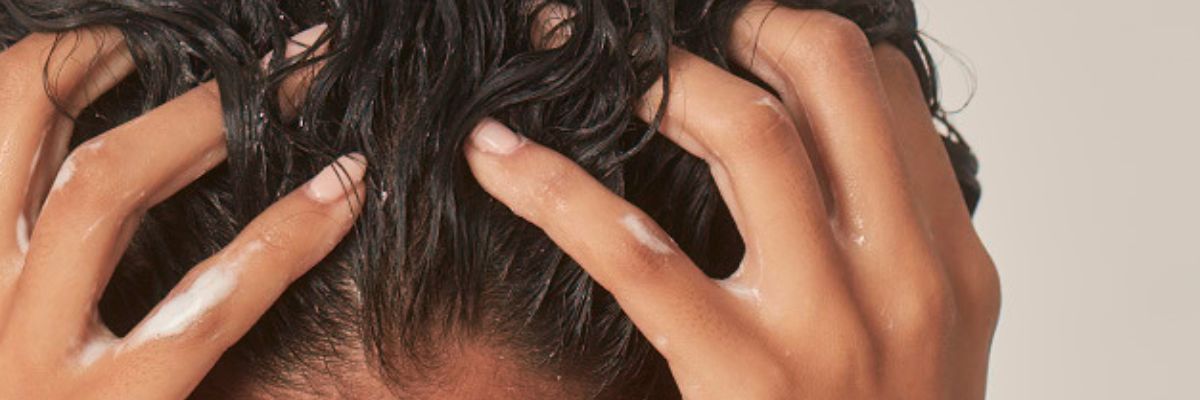For many of us, achieving radiant skin and an even skin tone can feel like an ongoing challenge, especially if you suffer from hyperpigmentation, a condition that causes the skin to appear brown and blotchy.
The good news is there are several methods to help you manage dull, blotchy and uneven skin caused by this common skin condition.

What is Hyperpigmentation?
Hyperpigmentation is the term used to refer to skin that appears darker in patches on both the face and the body. The patches can vary in size and appear throughout different stages of our lives.
Hyperpigmentation occurs when melanin (a protein manufactured by the skin) production increases. People whose skin is regularly exposed to the sun or who suffer from inflammation are most at risk.
There are several types of hyperpigmentation, the three most prevalent are:
- Sunspots are related to excessive sun exposure over an extended period. They tend to appear as spots on areas that are regularly exposed to the sun such as the face, arms and hands.
- Post-inflammatory hyperpigmentation is a result of an injury or inflammation to the skin. A common cause is acne or pimples.
- Melasma is believed to be caused by hormonal changes. Areas of hyperpigmentation can appear on any area of the body, the most common being the stomach and face. Melasma often starts to develop during pregnancy.
Other factors that can commonly contribute to this skin condition are:
- The use of oral contraceptive
- Certain drugs that can increase your sensitivity to the sunlight
- Having darker skin type, which can be more prone to pigmentation changes
- Injuries to the skin such as a wound or burn

How to Help Alleviate Hyperpigmentation
If you're one of many people feeling fed up with discolouration such as age spots, blotches or pregnancy-related dark patches, there are a range of possible methods you can use to try to help this skin condition.
Prevention/stopping the condition to become worse
Protect yourself from the sun - Wear a wide brimmed hat, protective clothing and ensure you use a sunscreen with an SPF of 30 or higher every day to protect the skin and stop hyperpigmentation from becoming darker.
The heat from the sun can damage and age your skin and being sun smart is especially important if you are prone to pigmentation.
Avoid scratching or picking at the skin - When you suffer from acne, pimples or other spots, do your best to prevent hyperpigmentation by avoiding picking or scratching the scabs.
Cosmetic procedures
There are several cosmetic procedures available to help lighten areas of your skin to reduce the appearance of hyperpigmentation.
These procedures include:
- intense pulsed light
- microdermabrasion
- laser therapy
- chemical peels
For people considering undergoing these procedures it is important that they first discuss the matter with a skin care specialist, or dermatologist. Ensure you are informed on any potential side effects that may arise.
Topical creams
Whilst there are a range of topical treatments available to hyperpigmentation sufferers, it is imperative to do your research on what choice is best for your condition and your skin type. It is also important that whatever products you decided to use, you adopt a gentle approach in reducing your hyperpigmentation. A fast and harsh approach is not recommended as can lead to this skin condition getting worse.
Kiri Yanchenko, founder of the AMPERNA® brand is helping many people with several types of hyperpigmentation via her Telehealth Holistic Skin Coaching Service and products.
She developed a unique range of products that are affordable and make for an effective skincare program for even the most sensitive skin.
AMPERNA® 10% Pro+ Resurfacing Lotion is helping people with hyperpigmentation through the power of glycolic acid and probiotics. The product contains 10% glycolic acid (AHA) and antioxidants to help calm redness and improve the skin’s texture. The hero ingredient, glycolic acid, helps to reduce the appearance of dark circles and uneven skin tone.
The lotion is very gentle and won’t aggravate your skin or cause additional pigmentation. It is suitable for all skin types and has been tested on eczema, dermatitis, perioral dermatitis, rosacea and acne prone skin.
The next step in your regime would be a retinol.
AMPERNA®’s unique probiotic complex delivers good bacteria to your skin gently and effectively. It is non-comedogenic, contains no nasties, is tested on real people and is Australian made and owned.
Over the next few months AMPERNA® is set to expand the range with two additional products that will further help with hyperpigmentation. Follow us on Instagram https://www.instagram.com/ampernaskin/ and Facebook https://www.facebook.com/ampernaskin to keep updated on their release.

Sources:
https://www.medicalnewstoday.com/articles/323808
https://australianskinclinics.com.au/pigmentation-uneven-skin-tone/
https://www.aad.org/public/diseases/a-z/melasma-treatment
















![Introducing AMPERNA® [DERMACARE] Haircare: For Scalp Comfort and Strong Hair](http://amperna.com/cdn/shop/articles/42_efd53385-7cf9-4b45-8e54-982415ee8fbc.jpg?crop=center&height=720&v=1761871871&width=1200)

